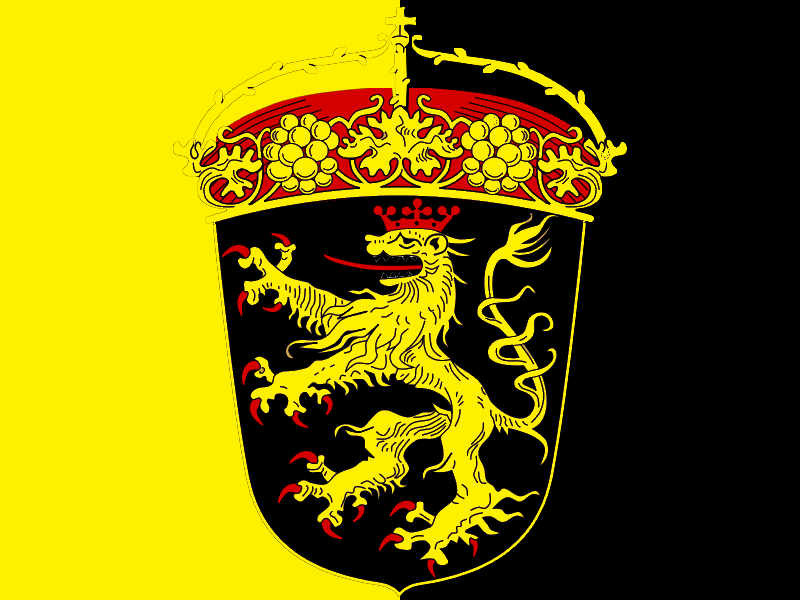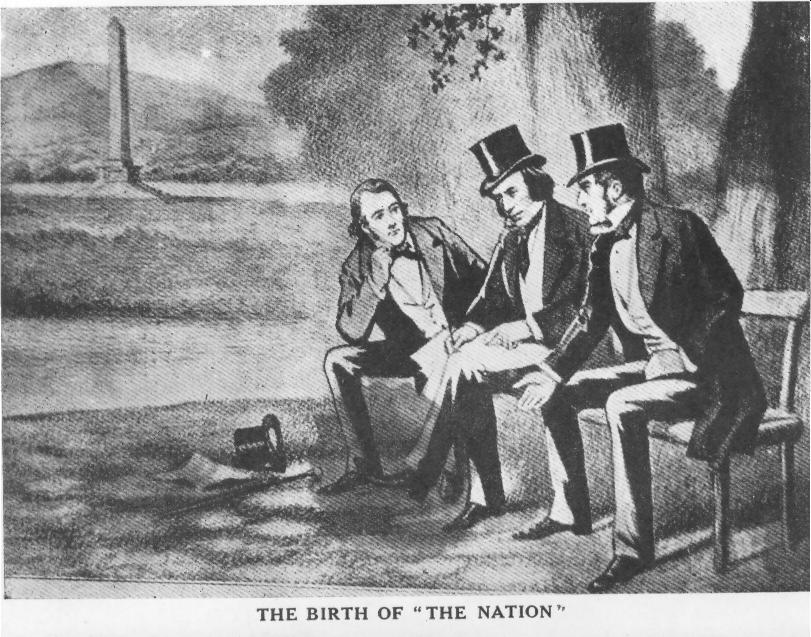|
Hugh Heinrick
Hugh Heinrick (also known as Hugh Henrick) (1831–1877) was a journalist and teacher and a campaigner for Home Rule in Ireland. He was born in Caim near Enniscorthy in County Wexford, Ireland and his surname suggests that he may have been a member of the German Palatine community that settled in the area in the early 18th century. Some time in the mid-19th century, Heinrick moved to mainland Britain, first to Kirkcudbrightshire in Scotland and then to the Aston district of Birmingham, where he settled and worked as a schoolmaster. He was very much involved in the Irish Home Rule movement in the late 19th century, being Secretary to the Irish Home Rule MPs during the General Election of 1874 in which the Home Rule League won 59 seats. He was a frequent speaker at public meetings about Irish Home Rule and wrote a number of newspaper articles on the subject. In 1871, he was Editor of the 'Irish Vindicator', the first newspaper for Irish migrants in London, although it was not a succ ... [...More Info...] [...Related Items...] OR: [Wikipedia] [Google] [Baidu] |
German Palatines
Palatines () were the citizens and Prince of the Holy Roman Empire, princes of the List of states in the Holy Roman Empire, Palatinates, Holy Roman States that served as Kaiserpfalz, capitals for the Holy Roman Emperor. After the fall of the Holy Roman Empire in 1806, the nationality referred more specifically to residents of the Palatinate (region), Rhenish Palatinate, known simply as "the Palatinate". American Palatines, including the Pennsylvania Dutch, have maintained a presence in the United States as early as 1632 and are collectively known as "Palatine Dutch" (). The earliest Palatines settled in the Province of Maryland, Maryland Palatinate, an American palatinate established by the Calvert family as a haven for Catholic refugees. Holy Roman Nationality Paladins The term ''palatine'' or ''palatinus'' was first used in the Roman Empire for Chamberlain (office), chamberlains of the emperor (e.g. Chamberlain of the Holy Roman Church) due to their association with the Palat ... [...More Info...] [...Related Items...] OR: [Wikipedia] [Google] [Baidu] |
Irish Home Rule Movement
The Home Rule movement was a movement that campaigned for Devolution, self-government (or "home rule") for Ireland within the United Kingdom of Great Britain and Ireland. It was the dominant political movement of Irish nationalism from 1870 to the end of World War I. Isaac Butt founded the Home Government Association in 1870. This was succeeded in 1873 by the Home Rule League, and in 1882 by the Irish Parliamentary Party. These organisations campaigned for home rule in the House of Commons of the United Kingdom introduced the Government of Ireland Bill 1886, First Home Rule Bill in 1886, but the bill was defeated in the House of Commons after a split in the Liberal Party. After Parnell's death, Gladstone introduced the Government of Ireland Bill 1893, Second Home Rule Bill in 1893; it passed the Commons but was defeated in the House of Lords. After the Parliament Acts 1911 and 1949, removal of the Lords' veto in 1911, the Government of Ireland Act 1914, Third Home Rule Bill was ... [...More Info...] [...Related Items...] OR: [Wikipedia] [Google] [Baidu] |
1874 United Kingdom General Election
The 1874 United Kingdom general election was held between 31 January to 17 February 1874. The Conservatives under the leadership of Benjamin Disraeli won a decisive victory against the incumbent governing Liberals under William Ewart Gladstone, even though the Liberals achieved more votes than the Conservatives, largely caused by the number of uncontested Conservative-held seats. The election saw the Irish of the Home Rule League become a significant third party in Parliament, with 60 of 101 of the seats for Ireland. This was the first UK election to use a secret ballot following the 1872 Secret Ballot Act. The Irish Nationalist gains could well be attributed to the effects of the Secret Ballot Act, as tenants faced less of a threat of eviction if they voted against the wishes of their landlords. Also in this election, the first two working-class MPs were elected: Alexander MacDonald and Thomas Burt, both members of the Miners' Union, were elected as Liberal-Labour (Lib–La ... [...More Info...] [...Related Items...] OR: [Wikipedia] [Google] [Baidu] |
Home Rule League
The Home Rule League (1873–1882), sometimes called the Home Rule Party, was an Irish political party which campaigned for home rule for Ireland within the United Kingdom of Great Britain and Ireland, until it was replaced by the Irish Parliamentary Party. The Home Rule Confederation of Great Britain was a sister organisation in Great Britain. Origins Following the failure of the Fenian Rising of 1867 less revolutionary tactics were considered. The Home Rule League grew out of the Home Government Association, a pressure group formed in 1870 and led by Isaac Butt, a Dublin-based barrister who had once been a leading Irish Tory before becoming a convert to Irish nationalism. On 18–21 November 1873, the loose association re-constituted itself as a full political party, the Home Rule League, and in the 1874 general election, many of whom were from an Irish aristocratic or gentry Church of Ireland background, some newly dedicated former Irish Liberal Party members, such as ... [...More Info...] [...Related Items...] OR: [Wikipedia] [Google] [Baidu] |
The Nation (Irish Newspaper)
''The Nation'' was an Irish nationalist weekly newspaper, published in the 19th century. ''The Nation'' was printed first at 12 Trinity Street, Dublin from 15 October 1842 until 6 January 1844. The paper was afterwards published at 4 D'Olier Street from 13 July 1844, to 28 July 1848, when the issue for the following day was seized and the paper suppressed. It was published again in Middle Abbey Street on its revival in September 1849 until 1900, when it merged with the ''Irish Weekly Independent''. Background The founders of ''The Nation'' were three young men – two Catholics and one Protestant – who, according to the historian of the newspaper T. F. O'Sullivan, were all "free from the slightest taint of bigotry, and were anxious to unite all creeds and classes for the country's welfare.".Young Ireland, T. F. O'Sullivan, The Kerryman Ltd. 1945 pg 6 They were Charles Gavan Duffy, its first editor; Thomas Davis, and John Blake Dillon. All three were members of Daniel O'Co ... [...More Info...] [...Related Items...] OR: [Wikipedia] [Google] [Baidu] |
Isaac Butt
Isaac Butt (6 September 1813 – 5 May 1879) was an Irish barrister, editor, politician, Member of Parliament in the House of Commons of the United Kingdom, economist and the founder and first leader of a number of Irish nationalist parties and organisations. He was a leader in the Irish Metropolitan Conservative Society in 1836, the Home Government Association in 1870, and the Home Rule League in 1873. Colin W. Reid argues that Home Rule was the mechanism Butt proposed to bind Ireland to Great Britain. It would end the ambiguities of the Act of Union of 1800. He portrayed a federalised United Kingdom, which would have weakened Irish exceptionalism within a broader British context. Butt was representative of a constructive national unionism. As an economist, he made significant contributions regarding the potential resource mobilisation and distribution aspects of protection, and analysed deficiencies in the Irish economy such as sparse employment, low productivity, and ... [...More Info...] [...Related Items...] OR: [Wikipedia] [Google] [Baidu] |
19th-century Irish Writers
The 19th century began on 1 January 1801 (represented by the Roman numerals MDCCCI), and ended on 31 December 1900 (MCM). It was the 9th century of the 2nd millennium. It was characterized by vast social upheaval. Slavery was Abolitionism, abolished in much of Europe and the Americas. The First Industrial Revolution, though it began in the late 18th century, expanded beyond its British homeland for the first time during the 19th century, particularly remaking the economies and societies of the Low Countries, France, the Rhineland, Northern Italy, and the Northeastern United States. A few decades later, the Second Industrial Revolution led to ever more massive urbanization and much higher levels of productivity, profit, and prosperity, a pattern that continued into the 20th century. The Catholic Church, in response to the growing influence and power of modernism, secularism and materialism, formed the First Vatican Council in the late 19th century to deal with such problems an ... [...More Info...] [...Related Items...] OR: [Wikipedia] [Google] [Baidu] |
Irish Nationalists
Irish nationalism is a nationalist political movement which, in its broadest sense, asserts that the people of Ireland should govern Ireland as a sovereign state. Since the mid-19th century, Irish nationalism has largely taken the form of cultural nationalism based on the principles of national self-determination and popular sovereignty.Sa'adah 2003, 17–20.Smith 1999, 30. Irish nationalists during the 18th, 19th, and 20th centuries such as the United Irishmen in the 1790s, Young Irelanders in the 1840s, the Fenian Brotherhood during the 1880s, Fianna Fáil in the 1920s, and Sinn Féin styled themselves in various ways after French left-wing radicalism and republicanism. Irish nationalism celebrates the culture of Ireland, especially the Irish language, literature, music, and sports. It grew more potent during the period in which all of Ireland was part of the United Kingdom, which led to most of the island gaining independence from the UK in 1922. Irish nationalists bel ... [...More Info...] [...Related Items...] OR: [Wikipedia] [Google] [Baidu] |
1831 Births
Events January–March * January 1 – William Lloyd Garrison begins publishing '' The Liberator'', an anti-slavery newspaper, in Boston, Massachusetts. * January 10 – Japanese department store, Takashimaya in Kyoto established. * February–March – Revolts in Modena, Parma and the Papal States are put down by Austrian troops. * February 2 – Pope Gregory XVI succeeds Pope Pius VIII, as the 254th pope. * February 5 – Dutch naval lieutenant Jan van Speyk blows up his own gunboat in Antwerp rather than strike his colours on the demand of supporters of the Belgian Revolution. * February 7 – The Belgian Constitution of 1831 is approved by the National Congress. *February 8 – French-born botanical explorer Aimé Bonpland leaves Paraguay for Argentina. * February 14 – Battle of Debre Abbay: Ras Marye of Yejju marches into Tigray, and defeats and kills the warlord Sabagadis. * February 25 – Battle of Olsz ... [...More Info...] [...Related Items...] OR: [Wikipedia] [Google] [Baidu] |





